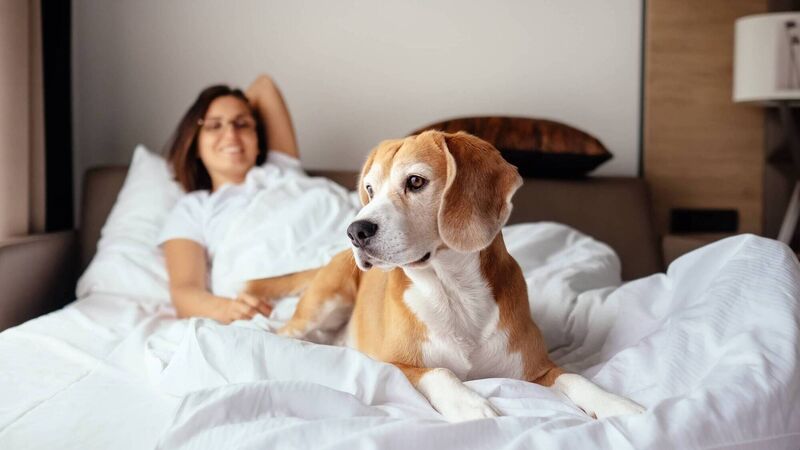Snoring, slugs, and mites: is it safe for pets to sleep on our beds?

Does letting your dog sleep in your bed lead to bad habits? Picture: iStock
Vomiting on the bed. Snoring. The shedding of hair. The stealing of sheets. The passing of wind. Night-time face-licking. A higher-than-average chance of catching sarcoptic mange …
If I could sit my dog down and quietly explain the risks associated with him sharing the bed with us, this is the list I would read to him. But I know he wouldn’t listen. Oz, our young lurcher, would only warmly reimagine that scene he recently saw. When, on my birthday, the family let him come upstairs and on to the bed to wake me up. When he saw, for the first time, Upstairs Land. And then widdled with joy.








